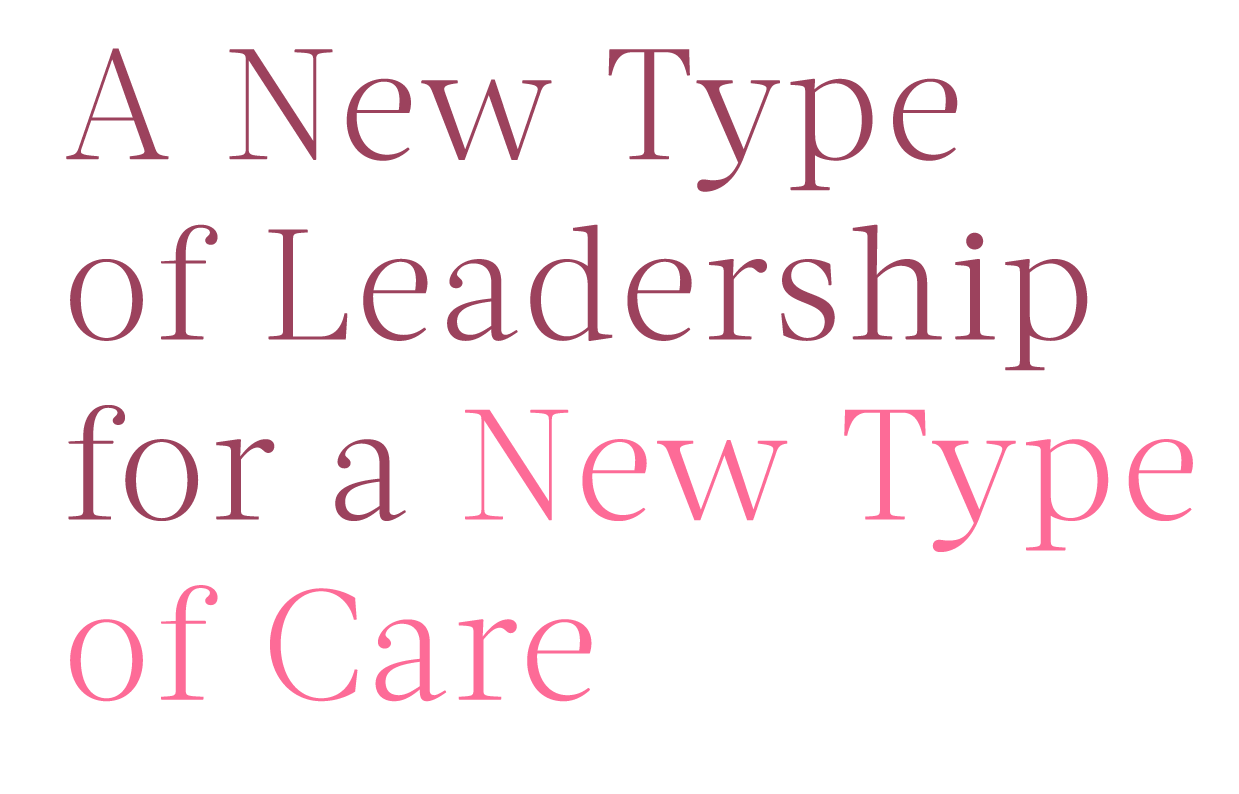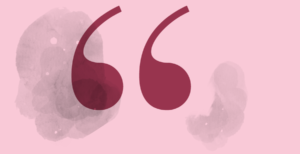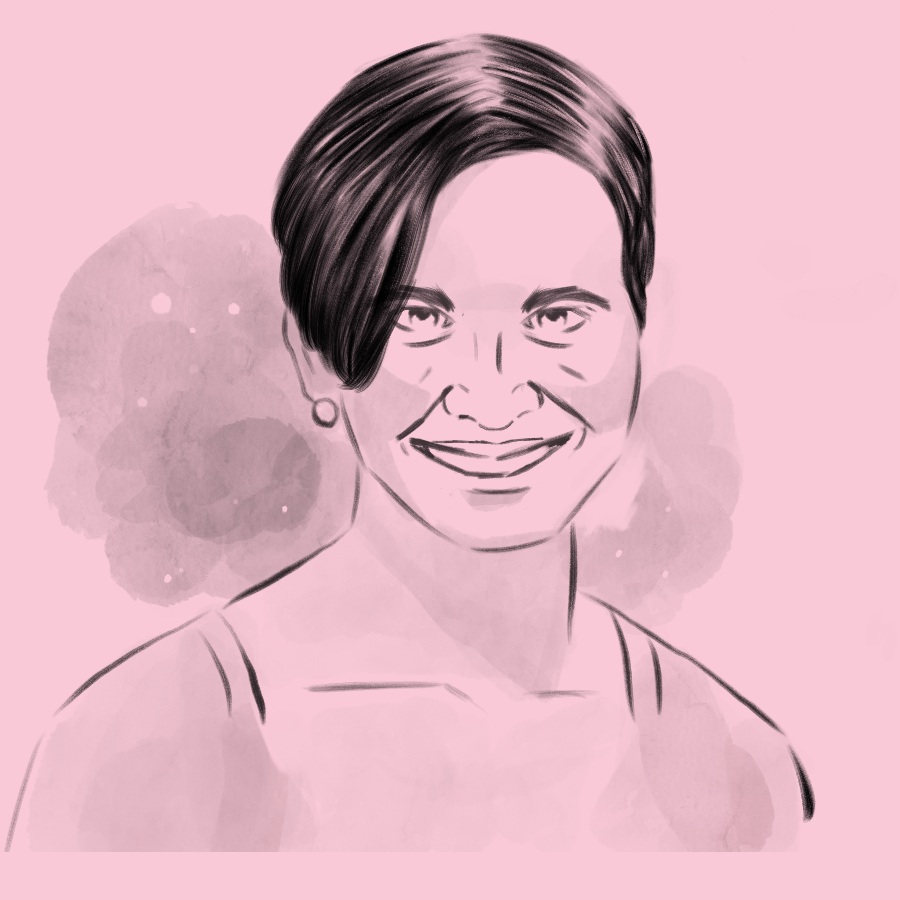
STORY BY KATE KHALED + ART BY BENJAMIN CURRIE

STORY BY KATE KHALED + ART BY BENJAMIN CURRIE
A new type of healthcare requires a new, more creative and collaborative type of leadership. It requires a leader willing to step back or forward as needed, take risks, bring others along, and elevate a mission into daily conversations about how work gets done.

“We apply principles from jazz into leadership. Sometimes I’m soloing and sometimes I’m supporting. Sometimes I need to step back and let someone else do the riff. Sometimes I need to abandon my routine and try something different. I see more people having a stance of curiosity. We need to call back to our mission. Why are we really here?”


Meet Colleen McDonald Diouf, the chief executive officer of the Community University Healthcare Center (CUHCC), a 50-year-old federally qualified health center and department within the University of Minnesota’s Academic Health Center. A rectangular red brick building adorned with a colorful community mural, CUHCC is located on Bloomington Avenue in the heart of South Minneapolis.
The clinic offers medical, dental, mental health, advocacy, legal, and other programs all connected together by comprehensive care coordination and social work triage. With an innovative model of care, CUHCC serves nearly 11,000 patients a year through over 55,000 visits annually. The patient population comes from over 12 different racial and ethnic groups that span five continents. CUHCC’s mission is simple. To seek health equity in our community by advancing the well-being of diverse people.
Delivering this mission is more complex. It requires collaborative leadership, a commitment to constant learning and even a little bit of jazz. Leading this vibrant grassroots clinic isn’t a traditional task.
Thankfully, Colleen Diouf isn’t a traditional healthcare center CEO. She’s not a physician, nor does she hold a master’s degree in healthcare administration. Instead, she’s a passionate and energetic academic with a non-traditional and welcoming perspective on leadership. Colleen has a background in education, and she is a mother of three young children. She weaves her family life into her professional narrative. “As a leader, I have to remember to abandon my routine and try something different all the time. I just did that with my son this morning,” she smiles.

Colleen started her career with a master’s degree in international development and education where she worked with women in Senegal. There, she spent time focused on basic education for women in rural Senegal. Her passion for health and education took hold that year in Senegal while working for a highly successful grassroots basic education program. “My findings were mostly on health and hygiene.” she shares.
Once the Senegalese students she worked with were able to focus on their health and hygiene, they started making other positive changes in their lives, from collaborating with each other in new ways, to ending unhealthy relationships, to participating in civic life in deeper ways.
When Colleen returned stateside, she brought her knowledge about the transformative power of health to CUHCC as a mental health development specialist, and spent time really learning about the immigrant and refugee experience.
Eventually, Colleen moved from mental health development into fundraising and program development. She supervised CUHCC’s community mental health programs, was promoted to associate director, and in 2015, after what she describes as a “rigorous process,” was hired as CEO, bringing her passion for education and health along with her.
Colleen knows that being in charge isn’t about leading from high above, or even about pushing forward one perspective. Being CEO is about facilitating a team. Traditional leadership is heroic, dictatorial, and has a singular face. It’s hierarchical and prescriptive, and doesn’t leave room for other voices at the table. While traditional healthcare models might call for that type of leadership, new models require new, creative, and collaborative ways of leading.
“In my heart of hearts it’s how we bring the teams together to support the work. That’s where leadership is.”


Her collaborative leadership style aligns with the culture of growth and innovation she’s fostering at CUHCC. With so many experimental and cutting edge projects in the works, it would take multiple perspectives to make them all successful.
“Leadership has many faces.” Colleen explains. “It works when you get diversity of input, of training, of education, of culture, and of thought.”
Having benefited from mentorship herself, she hopes that she can help bring others up along with her. From her perspective, the one thing she’s hoping to walk out of this job with is knowing she facilitated the leadership of others.
“I was lucky. I didn’t have a lot of money growing up, so I didn’t have a lot of resources, but what I did have was very involved adults,” she shares. In Colleen’s world, there were a lot of women with various backgrounds who mentored her.
“These are the things that kept me whole, kept me growing, kept nourishing me over the years, and that’s the legacy I’d like to leave.”
Since Colleen wasn’t raised in a highly affluent environment, the female mentors in her life helped her realize her potential. It’s those examples of strong women that made her recognize her ability to be the mother of three children and the leader of a health center as effective and busy as CUHCC.


Entering CUHCC as an outsider, it is evident that this building isn’t a simple healthcare center. The staff and patients look equally at home in this space, reflecting and celebrating shared backgrounds and engaging together. “We have so many different services and patients have so many needs. Health equity shows up by engaging all the voices.”
Colleen’s team at CUHCC has been developing a whole new care model to prepare for the future. What started with a full service mental healthcare clinic, a full service dental care clinic, and a full service medical clinic, in addition to a pro bono legal clinic, is now a fully integrated system of care that serves the whole patient. They are focused on improving health outcomes and the care experience for all patients who walk through their doors. That care experience includes serving patients’ needs in ways that traditional healthcare systems don’t. It means looking at the whole person and bringing teams of specialty caregivers together to create patient-focused solutions. This team is traditionally led by a care coordinator in an Urban Health Model that includes Social Work Triage. In contrast to traditional healthcare models where a single professional treats a specific set of symptoms, an Urban Health Model meets the whole patient at the point of care. During patient intake, a social work coordinator learns about the patient’s life and determines which services might be barriers to care. Sometimes a patient is hungry, other times a patient has a persistent mental illness or a cultural barrier that might render a patient care plan difficult or impossible. This role helps connect people with services like food shelves and housing at the point of care.

“The challenge we were having was there was no continuum between [the silos]. What happens when you aren’t ready to engage in psychiatry? What happens when you don’t have food? It’s not really a traditional primary care provider issue, but it’s certainly something an individual needs to address.”
The Urban Health Model is a unique patient-centered model that ensures access to culturally competent, integrated health services with care coordination, social work, and other enabling services. The model is bolstered with interprofessional care teams, sophisticated data analytics, and systematic quality improvement initiatives.
What that means for patients: care meets them where they are. Not only does CUHCC provide patients with a continuum of services, but they also provide those services in seven languages. CUHCC develops its services to meet the unique needs of people from various backgrounds and cultures. Leading by example, CUHCC also hires staff and medical providers from the cultural communities they serve. All of this intentionality has led to extremely positive health outcomes for patients. In 2015, CUHCC was rated in the top 30% of clinics among their community clinic peers.
For Colleen, it’s exciting to see her team’s hard work bear fruit but the work is ongoing. This year they are starting a new project called ‘Hotspotting’ that aims to decrease the cost of care by focusing services on the sickest healthcare users.
With Colleen building and supporting her team, CUHCC is always moving forward. In concert with the more than 300 University of Minnesota students who learn and work there daily, and the vibrant and diverse neighborhood where it operates, CUHCC is continually testing creative models of care, learning from its patients, and leading the way towards a healthier community. A shared leadership ethos, a deep, regenerating, and soulful commitment to community health and a little bit of jazz health are the only way to move this critical work forward for traditionally disenfranchised Minneapolis residents.


This story was created in partnership with the Minnesota Accountable Health Model – SIM Minnesota.
This story and project partners* featured in this story were funded by a $45 million State Innovation Model (SIM) cooperative agreement, awarded to the Minnesota Departments of Health and Human Services in 2013 by the Center for Medicare and Medicaid Innovation to help implement the Minnesota Accountable Health Model.
*Children’s Dental Services
Contributors
Illustrations by Bomsymbol, sourced from the Noun Project.